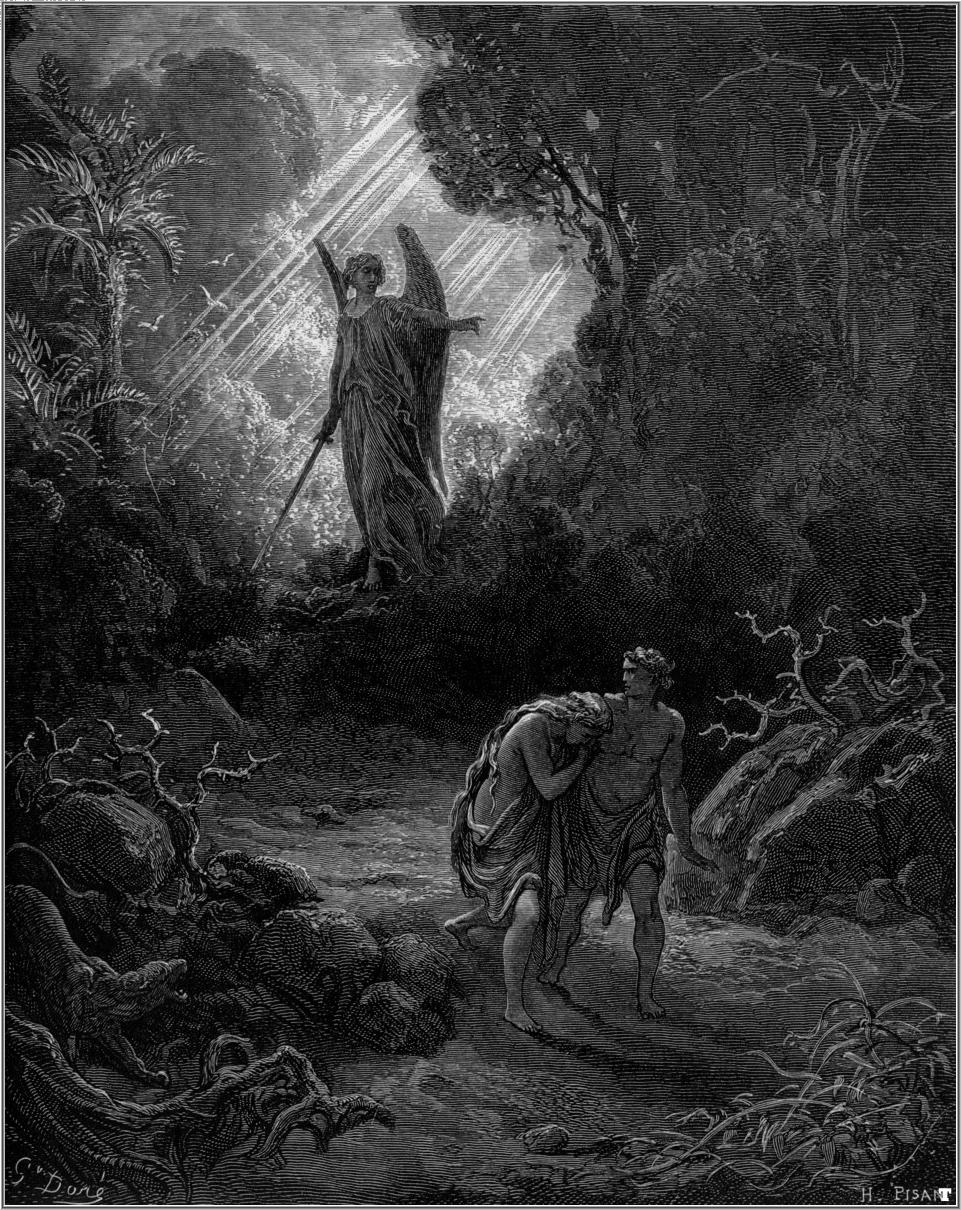Expulsion from the garden by Gustave Doré, Genesis 3:21-24, Bible.Gallery

Expulsion from the garden created 1865 nad was completed in 1865 and it was drawn with engraving style.
Artwork Description
The depiction presented in Genesis 3:24 portrays the poignant moment when humanity was banished from the paradise of Eden. This scene has captured the attention of artists for its sorrowful contrast to the preceding blissful existence. The drama of exile has been echoed throughout history, but none so profoundly as the experience of the first pair, who, hand in hand, ventured forth with faltering steps on their solitary journey through Eden.
Yet, the significance of this event extends beyond sentimental emotions. The expulsion from the garden marks a pivotal point in the history of mankind, signifying that humanity is no longer as it once was. Across cultures, ancient traditions recount a time when humanity was nobler, purer. The universal acknowledgment of human depravity is not merely a theological dogma but a deeply ingrained and shared belief. Philosophers, moralists, historians, and theologies from various faiths all attest to this fundamental understanding.
The cause of this widespread and profound flaw finds its clarity and meaning in the narrative of Moses. Originally, man was made in the image of his Creator, untainted by sin. Had humanity maintained that divine image, the many afflictions plaguing the world would have been nonexistent. However, humanity's failure and fall introduced a pernicious virus that has infected every member of the human race. "By one man sin entered into the world, and death by sin; and so death passed upon all men, for that all have sinned."
The heartrending portrayal of Adam and Eve's shame and fear as they fled their once-holy abode serves as the very cause and representation of each individual's estrangement from God's favor and communion. It is a poignant reminder of the eternal consequence of that original transgression.
Yet, the same sacred text that reveals the expulsion from Eden also unveils the path of return. While Eden may have vanished forever, a greater realm awaits those who overcome the trials of life – a realm untouched by curses, where once entered, they dwell eternally. As written in Revelation ii. 7, "To him that overcometh will I give to eat of the tree of life, which is in the midst of the paradise of God." This promise offers hope and redemption, inviting humanity to seek reconciliation and restoration to the divine presence that was lost in Eden's tragic tale.